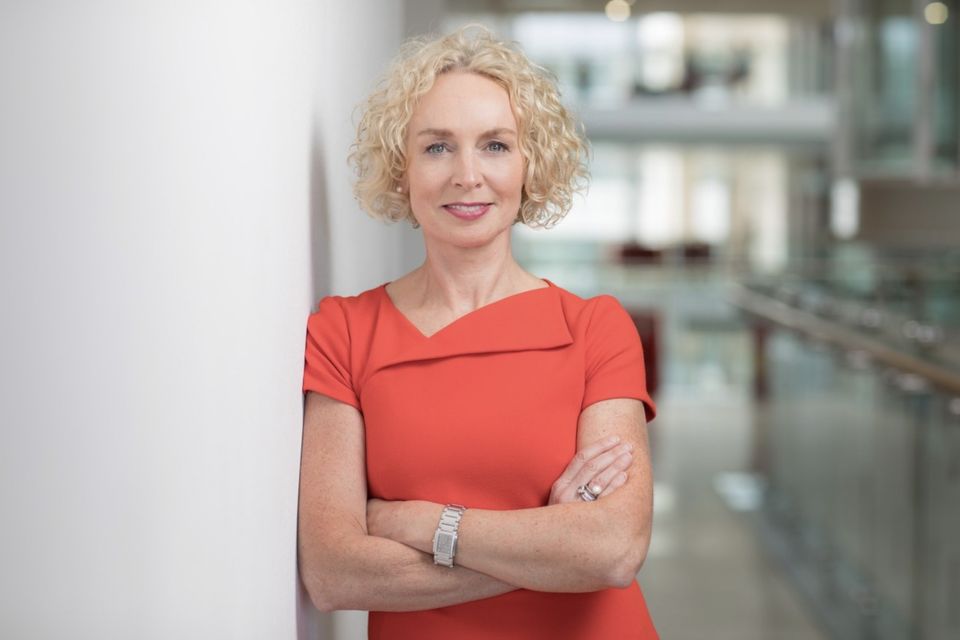Anne O’Leary named as new Meta Ireland boss
The longstanding Vodafone Ireland chief, who moved to Meta last September, has been appointed head of Meta Ireland after the departure of Rick Kelley.
Anne O'Leary has been appointed as head of Meta Ireland
Anne O’Leary, the longstanding Vodafone boss who joined Meta last September, has been appointed as the new head of Meta Ireland.
Ms O’Leary replaces Rick Kelley, who occupied the top job at Meta Ireland for just 11 months before announcing his departure.
In a statement, Meta said that Ms O’Leary’s current role as a vice-president in the tech giant’s sales-focused Emea global business group would continue to be her “primary” role. Ms O’Leary leads a team that sells ad campaigns to medium-sized businesses across Europe, the Middle East and Africa.
Her appointment comes at a time of relative turbulence for Meta, which encompasses Facebook, Instagram, Whatsapp and Oculus.
The company has laid off about a quarter of its entire workforce, with Irish staff waiting to see whether headcount at Dublin office – which is Meta’s international headquarters – will be affected further. Meta has around 2,700 staff and also indirectly employs thousands of additional contract workers.
Last year, Meta announced 350 Irish staff layoffs as part of a job-cutting drive that saw 11,000 staff (13pc of the company) let go. Last month, the tech giant announced that a further 10,000 staff would be laid off, although the impact on Irish operations has not yet been finally determined.
"I’m optimistic about our future,” said Ms O’Leary, who will start as Meta Ireland boss on May 1st.
“Meta is a company that has shown extraordinary resilience. In my role working with businesses, I’m seeing first hand how our apps help over 200 million businesses large and small connect with their customers and grow. It's why we'll continue to invest in AI and automation so that businesses of all sizes can continue to get the best return on their investment with Meta.”
Among the biggest tech giants, Meta’s business has been particularly impacted in the last 18 months. Aside from the general contraction in tech industry fortunes, Meta took a hit of over €10bn per year from Apple’s decision to make it easier for smartphone users to stop Facebook and Instagram from tracking users for ads. The company’s Metaverse project, which founder Mark Zuckerberg hopes will become the next big online platform and which has cost the firm over €10bn so far, has also not yet borne commercial or industrial fruit.
Ms O’Leary, who led Vodafone Ireland for 9 years before joining the social media giant, is Meta’s third Ireland boss in the last 12 months. Her predecessor, Meta’s gaming VP, Rick Kelley, succeeded Gareth Lambe, who left to take a career break.
In March, Mr Zuckerberg warned of worse financial outcomes for “many years”.
“At this point, I think we should prepare ourselves for the possibility that this new economic reality will continue for many years,” he wrote, outlining the reason why Meta was laying more people off.
“Higher interest rates lead to the economy running leaner, more geopolitical instability leads to more volatility and increased regulation leads to slower growth and increased costs of innovation. Given this outlook, we'll need to operate more efficiently than our previous headcount reduction to ensure success. In the face of this new reality, most companies will scale back their long term vision and investments.”
Mr Zuckerberg added that the company is currently seeking “organisational efficiency, [to] dramatically increase developer productivity and tooling, optimise distributed work, garbage collect unnecessary processes, and more”.
However, he also said that once the new round of layoffs are complete, the company hopes to resume hiring.
“After restructuring, we plan to lift hiring and transfer freezes in each group,” he said. “Other relevant efficiency timelines include targeting this summer to complete our analysis from our hybrid work year of learning so we can further refine our distributed work model. We also aim to have a steady stream of developer productivity enhancements and process improvements throughout the year.”

